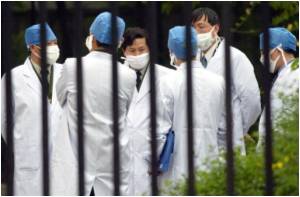
Dr Paul Darragh, Chairman of the BMA’s Council in Northern Ireland, who has himself been assaulted in the past, said,
“The findings of this survey are incredibly worrying for the medical profession. The abuse is often random, with no particular motivation behind the physical violence. The effect of threats, abuse and assaults impact not only on doctors on the receiving end, but also the wider healthcare team and other patients.
“Although a large proportion of A&E doctors told us that violence is very much a problem in A&E, over 60% of violent or abusive incidents were reported to have occurred in hospital wards.
“This cannot be allowed to continue”.
Worryingly, the report showed that many incidents involved a perpetrator who already had a history of violence or abuse.
Advertisement
“First and foremost, BMA(NI) is calling for patients and their relatives to stop abusing doctors who are trying to provide treatment.
Advertisement
The BMA(NI) report shows a clear difference in the approach taken to tackling violent patients between secondary and primary care.
Belfast GP Dr Michael McKenna, who has been attacked several times, said,
“Many of my colleagues take precautions against patients who are known to be violent. For example, they have had panic buttons installed in surgeries. However one of the best tools available for family doctors is the fact that there is a protocol in place to move violent patients to a different GP surgery, with appropriate facilities for treatment, which ensures that a patient will still receive treatment.
“This results in less risk to all staff in the surgery, including the receptionists and nurses.
“It would make sense for a similar robust process to be put in place in hospitals to both identify violent patients and enable doctors and other healthcare professionals to carry out their work in a safe environment”.
BMA(NI) acknowledges that policies have already been put in place which attempt to support doctors and healthcare workers who have been assaulted, emphasising the “zero tolerance” approach that must be taken.
Dr Darragh concluded,
“Doctors are here to treat patients and should not be prevented from doing so by violent and abusive patients and their families. While we welcome that work that has been carried out to date, more needs to be done to both prevent verbal and physical attacks from taking place, and to support staff who have been assaulted while doing their job”.
Source-BMA
SRM











